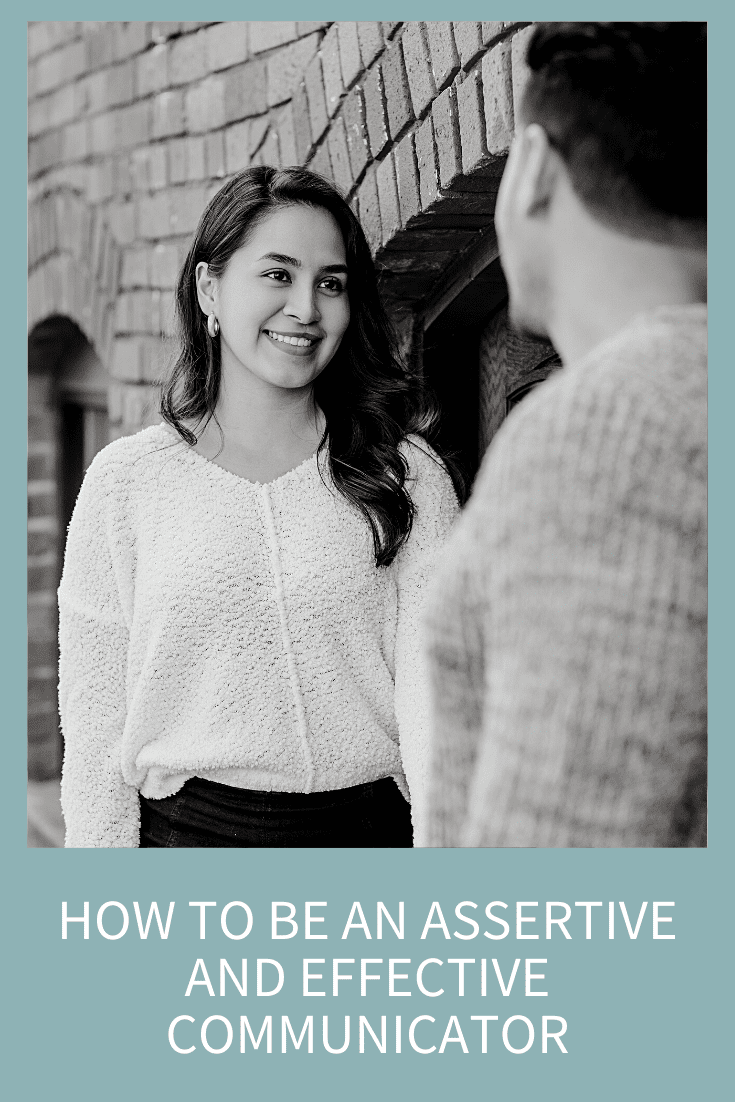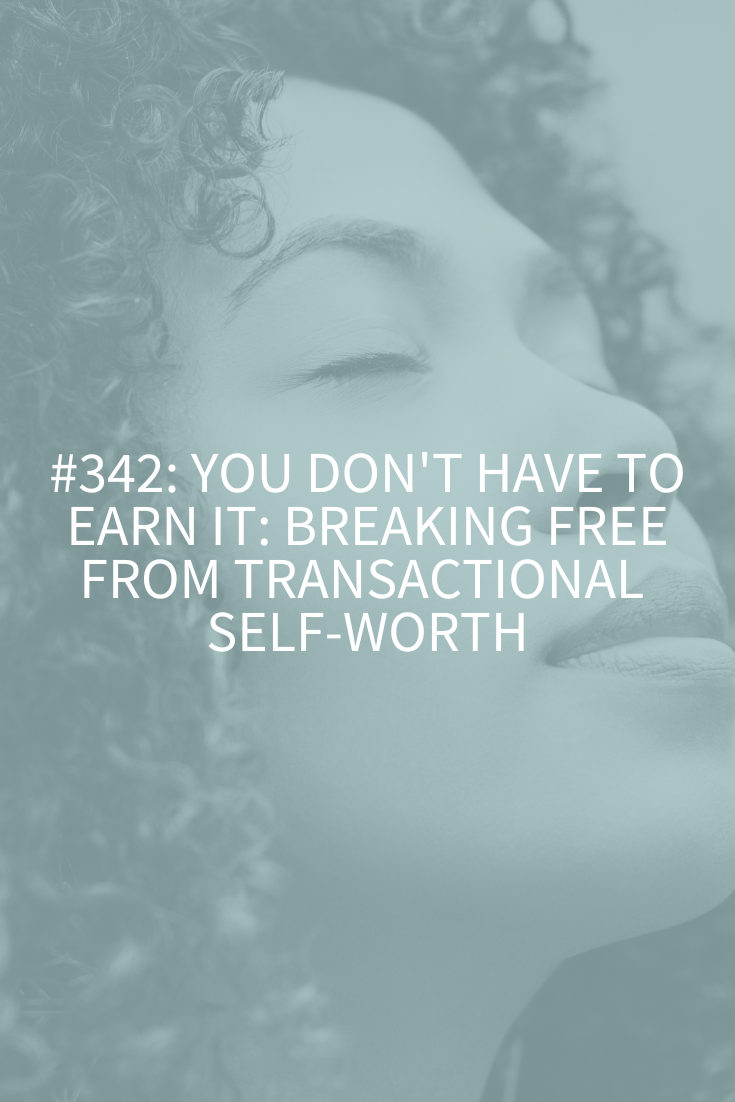
There are lots of different communication styles out there but, if you want to be an effective communicator in satisfying relationships, you’ve got to learn to be assertive and direct. The research has identified four main communication styles. Three of them aren’t so great but one is a healthy way to be an assertive and effective communicator. Keep reading to find out which style you are and how to shift into consistent, direct, successful communication in all your relationships.
7-minute read
There are four main communication styles that are the most discussed in the research. These are, of course, broad categories with a lot of generalizations so you might think, “Well, I’m all of those!” You’re not. I mean, you are a little, but all of us have our “go to” style that’s the most predominant. Today is meant to help, not pigeon hole, so take an honest look at yourself and think about what tips you can incorporate to communicate more effectively.
The Three (Mostly) Unhealthy Communication Styles
1. The Passive Communicator
Passive communicators don’t express their feelings, thoughts or opinions. In fact, they’ve been deferring to others for so long, that they might not even know their own thoughts or feelings. Because they’re so out of touch with their feelings, they often don’t respond in a hurt or angry way when something unwanted happens and have a very high threshold for painful situations. Often this person likes someone else to make decisions so they can avoid any conflict or tension.
Passive communicators, as you might imagine, suck at establishing any boundaries and, even if they do, they likely won’t assert themselves if someone tramples them.
However, these resentments and upsets build up until there’s a tipping point and that’s when you’ll see this passive person explode like a volcano and it’ll likely be over a small thing at that point. It’s just the 100th drop in the cup and it spills over. Usually, they’ll be full of shame, guilt, and regret after they get upset which will drive them back to being passive again. This pattern keeps them stuck which makes them feel depressed and hopeless. They might also be anxious because their life feels out of their control.
Things a passive communicator says:
- “I could never say that to him…”
- “Everyone always steps all over me.”
- “No one ever thinks about how I feel.”
- “There’s something wrong with me. I’m just weak. I can’t even take care of myself.”
- “I’m OK with whatever you want to do
2. The Aggressive Communicator
The opposite of the passive communicator would be the aggressive one. This person has no problem at all stating and advocating for what they want and need. In fact, they don’t seem to care if it steps on your toes (or smashes your foot) at all. This person is all about dominating others or a conversation and can be verbally or physically abusive.
Again, opposite of the passive communicator, this person has a very low level of frustration tolerance, and the slightest thing could set them off. They don’t listen well and will tend to interrupt, attack and criticize in conversations. They’re all about blaming others and not taking responsibility. They will appear entitled and often act impulsively and will always act defensively if called out.
An aggressive communicator is all about winning so they’ll bully, intimidate, raise their voice, or become threatening. They don’t respect others’ opinions and feel their own needs and wants trump everyone else’s.
Things an aggressive communicator says:
- “Me? What about you?!” (they’ll use “you” statements all the time)
- “If you’re intimidated, that’s on you”
- “This is all your fault”
- “You owe me”
- “Get over it”
- “Yelling is the only way I can get you to listen!”
This type of style can also be found in people with narcissistic tendencies and can be a form of gaslighting.
3. The Passive-Aggressive Communicator
This is a style that gets a lot of attention these days since it’s so common. The passive aggressive communicator will appear passive or OK with something but they’re really not, so they’ll take out their anger in indirect, undermining ways.
The number one feeling here is resentment. They don’t deal with their feelings or others directly but then are mad at the other person so feel resentful and like victims. Even when asked, they’ll often deny there’s a problem and might even seem like they’re cooperating. One of their favorite responses is giving the silent treatment, cold shoulder or withholding in some other way.
Things a passive aggressive person says:
- “Just checking to see if you got my last email”
- “Wow. I’m so impressed that you don’t seem to care that you’re carrying extra weight and will just walk around in those shorts.”
- “I’ll just do it myself.”
- “I didn’t hear you; that’s why I didn’t put away the dishes.”
- “Somebody left the milk out…. Again!
I’ve talked before about how to deal with passive aggressive people here.
The Healthy Communication Style You Want: The Assertive Communicator
What you really want is an assertive communication style.
Assertive communicators value themselves and the person they’re speaking to. They feel confident in their boundaries and the right to have them, so they clearly state their feelings, thoughts and opinions while still leaving space for another to state theirs. While direct, they are respectful, listen without interrupting and feel real curiosity when someone disagrees or has another way of doing something.
When an assertive communicator is speaking with you, you notice that they’re relaxed and want to connect and hear what you have to say. They actually know what they’re feeling and can be truly honest in their conversations.
What I really love about this communication style is that it both reflects and promotes higher self-esteem. In other words, even if you don’t have great self-esteem at the start, the more you interact with people in this way; the more you know your feelings and express them directly, the better you’ll feel about yourself! There’s a confidence here and it gets stronger over time and the need/want to manipulate, obfuscate, attack or diffuse goes away. You stop worrying what others think and care what you think.
Being more assertive doesn’t mean you’ll get what you want. Being assertive means you’ll walk away from any conversation feeling confident, calm and clear. It means no regrets (should have/could have/would have) and no second-guessing because you were honest and direct and that’s all you can be.
Assertive communication, at its core, comes from respect and compassion for yourself and the other person. It means you default to generosity, openness and thoughtfulness. It means you care about others without worrying about others.
Things an assertive person says:
- “I….” (they use “I” statements often and take full responsibility)
- “I can’t control what x is doing, but I can control my response”
Tips to be a more assertive and effective communicator:
- Be mindful! Knowing what not to do is as important as knowing what to do. When you practice mindfulness you’ll start noticing when you’re acting in one of the unhealthy styles. Noticing (and not judging or beating yourself up) is, seriously, half the battle!
- When you need to tell someone something but you keep avoiding it, send them a text or email letting them know you’d like some time to chat and then schedule a time and date beforehand. This will help you not chicken out and keep you accountable!
- Practice self-esteem and compassion building
- Practice being in positive momentum throughout your day :
- Pay more attention to how you feel all day!
The Last Word About Being an Effective Communicator
I need to say a word about different cultures here. There’s a LOT to be said about how cultural, racial, and gender influences these styles. I’ve traveled quite a bit and have found that my more direct and assertive style has absolutely been seen as aggressive. Now, this hasn’t only happened in other countries, but has happened in organizational meetings here in the US.
People bring their own biases in no matter where you live so I know that being a Jewish female plays a role in how people perceive me due to their own biases about how Jewish women act. They also might have biases about me being from New York or the United States and assume anyone from there is aggressive.
Whether you’re an Asian female, a Black male, or a small, blonde white woman you’re going to be dealing with others’ biases, internalized or otherwise. Heck, I’ve felt defensive at times just walking into a room inhabited by middle-aged White men. There are assumptions I clearly have or I wouldn’t have felt that walking in.
You can’t control any of this. You can only control yourself. You can only know your own mind and whether you’re in alignment with your Higher Self and coming from a place of truth and assertive communication for you.
Here’s how to be an effective communicator in any relationship:
Resources to be an Effective Communicator
Boundaries: How to Identify Them and How to Hold Them
The Secret to Creating Boundaries Not Walls
Shame: The Silent Killer in Relationships
Signs That Someone is Gaslighting You and What to Do About It
What is Gaslighting? Signs You’re Being Manipulated
How to Deal with Passive Aggressive People
How 5 Minutes of Mindfulness a Day Can Make Your Relationship Great
How to Make Mindfulness a Habit
Finally Stop Having Negative Thoughts
8 Ways to Build Your Confidence and Self-Esteem
Is Self-Compassion the Secret to a Happy Relationship?
Hoffman Institute, Feelings List
How to Listen without Getting Defensive or Hurt
8 Rules for Giving Great Feedback
The Complete Guide to Effective Communication in Any Relationship







